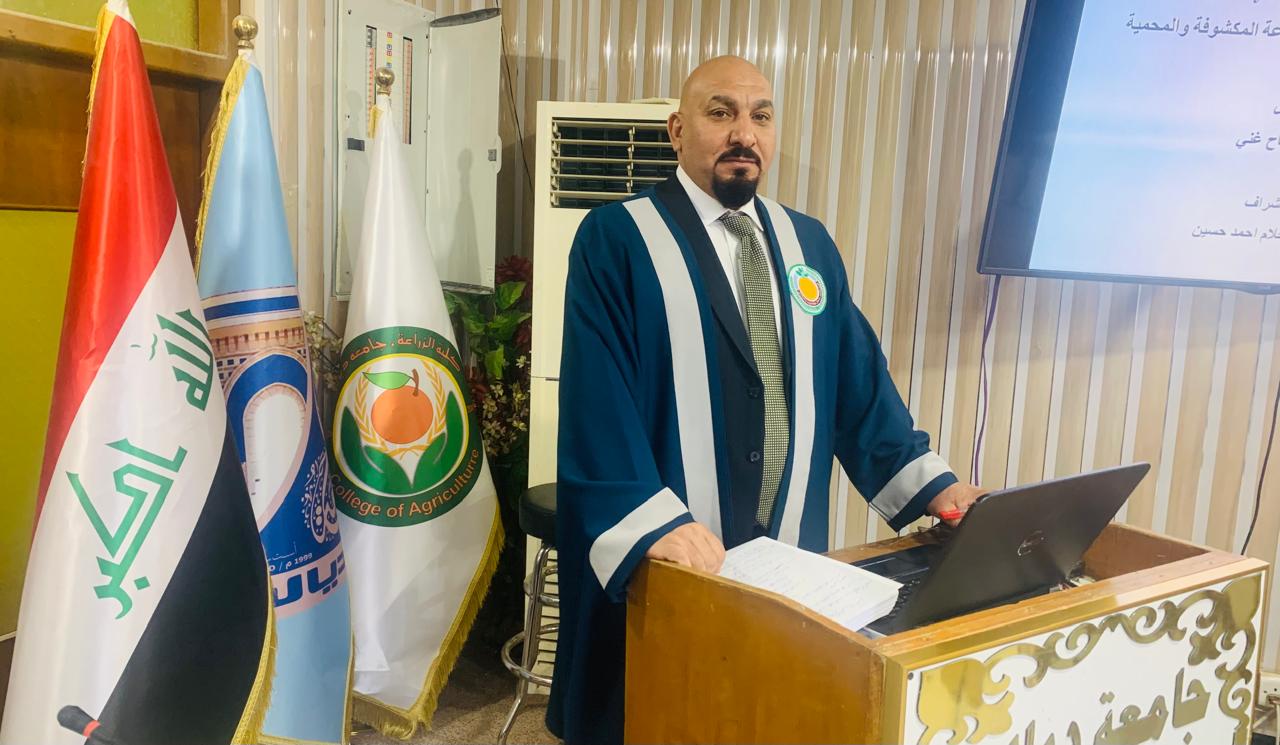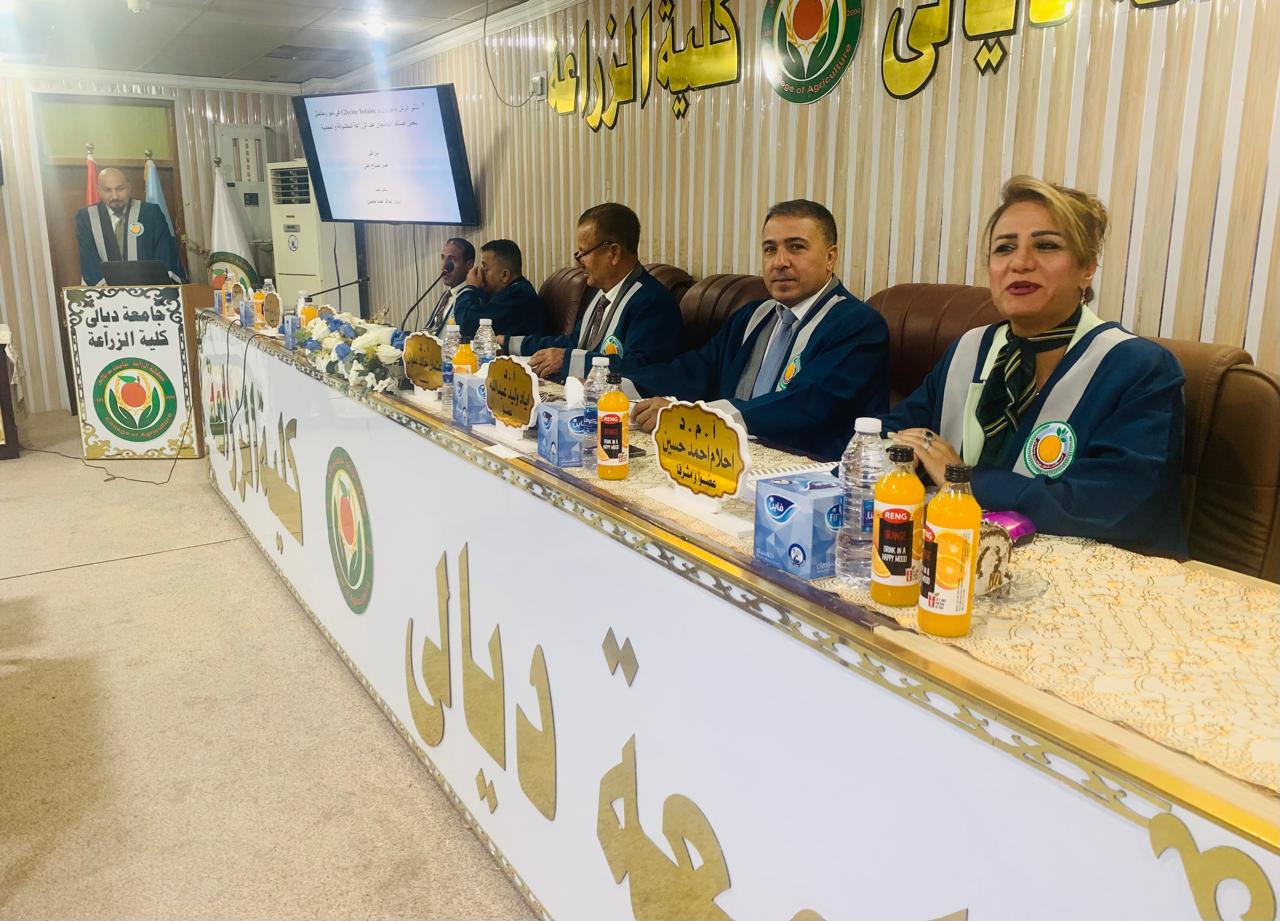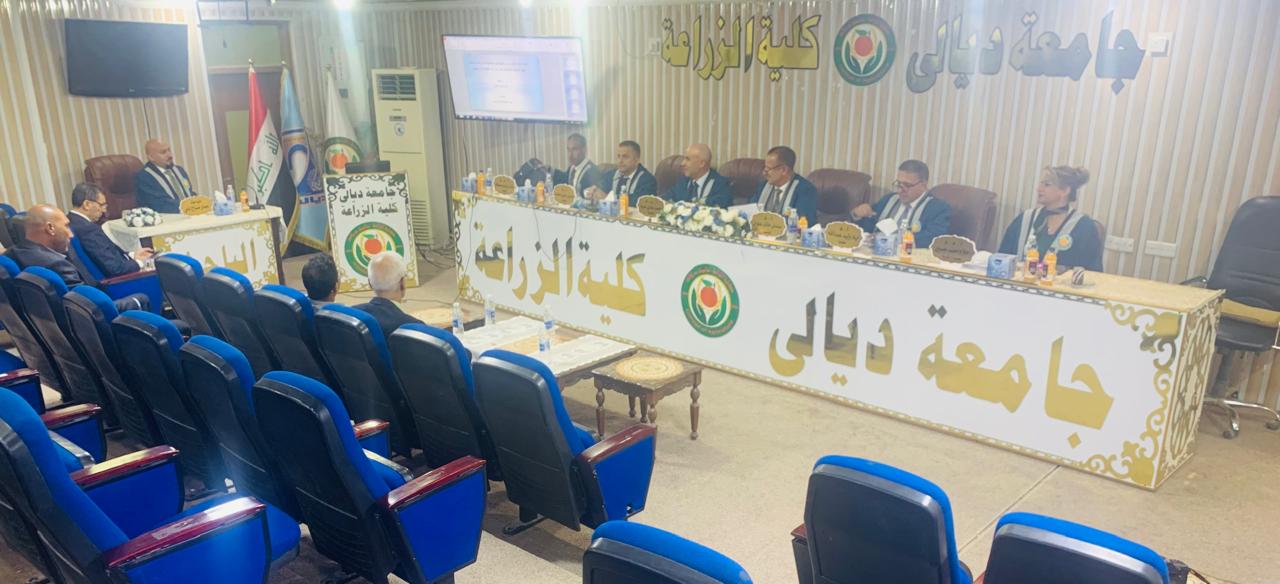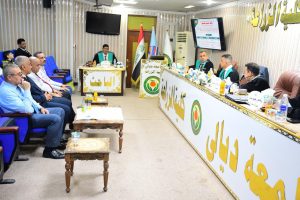A doctoral dissertation at the Faculty of Agriculture.

The College of Agriculture at the University of Diyala discussed a doctoral dissertation entitled The Effect of Boron and Glycine Betaine Foliar Sprays on the Growth and Yield of Certain Eggplant Cultivars under Open-Field and Protected Cultivation. This study, presented by the student Ammar Sabah Ghani, involved two separate experiments: the first conducted in an open field during 2021-2022, and the second under protected (plastic tunnel) conditions during 2022-2023. Both experiments were carried out in a private field located in the Al-Tahrir area of Baqubah, Diyala Governorate, to examine the impact of boron and glycine betaine sprays on the growth and yield of three eggplant cultivars under both open-field and protected cultivation.
Each experiment included three factors:
-
The first factor was boron applied at three concentrations: 0, 50, and 100 mg/L.
-
The second factor was glycine betaine, also at three concentrations: 0, 50, and 100 mg/L.
-
The third factor was the cultivar type, with three eggplant cultivars used for comparison: Curvelo F1, Fortin F1, and Hiwzere.
The study reached several conclusions, including:
-
Spraying plants with boron at concentrations of 50 and 100 mg/L resulted in significant improvement across most vegetative growth traits, yield, and its components, as well as biochemical characteristics of the leaves, fruit quality, and oxidative enzyme concentrations, especially under saline irrigation conditions.
-
All eggplant cultivars responded positively to glycine betaine spray at concentrations of 50 and 100 mg/L, enhancing most studied traits—both vegetative and productive—as well as fruit quality under saline irrigation.
-
The dual and triple interactions among the study factors positively affected most studied traits of eggplants grown in both open-field and protected (low tunnel) settings under saline irrigation.
The study recommends:
-
Cultivating the Hiwzere cultivar, as it outperformed the other cultivars in most traits in both experiments and showed greater tolerance to saline irrigation.
-
Applying boron and glycine betaine at concentrations of 50 and 100 mg/L, as these concentrations significantly enhanced most studied traits.
-
Using saline drainage water within certain salinity limits for irrigation in combination with treatments such as glycine betaine and boron to mitigate the negative effects of saline water. This approach makes use of available water resources, which is increasingly important given the global shortage of irrigation water.







